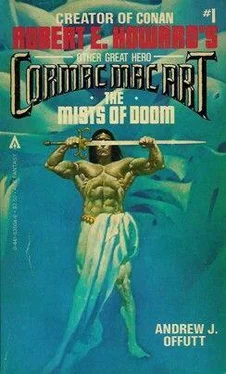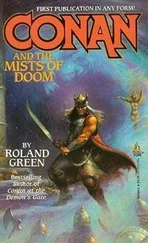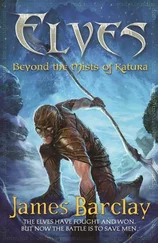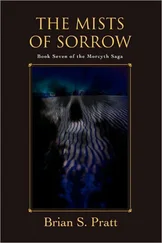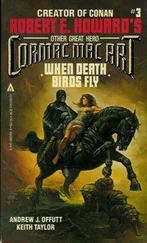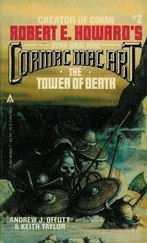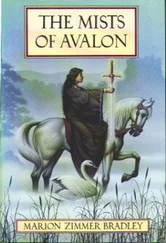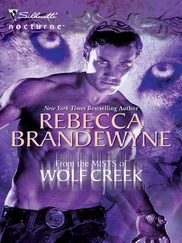Andrew Offutt - The Mists of Doom
Здесь есть возможность читать онлайн «Andrew Offutt - The Mists of Doom» весь текст электронной книги совершенно бесплатно (целиком полную версию без сокращений). В некоторых случаях можно слушать аудио, скачать через торрент в формате fb2 и присутствует краткое содержание. Жанр: Космическая фантастика, на английском языке. Описание произведения, (предисловие) а так же отзывы посетителей доступны на портале библиотеки ЛибКат.
- Название:The Mists of Doom
- Автор:
- Жанр:
- Год:неизвестен
- ISBN:нет данных
- Рейтинг книги:4 / 5. Голосов: 1
-
Избранное:Добавить в избранное
- Отзывы:
-
Ваша оценка:
- 80
- 1
- 2
- 3
- 4
- 5
The Mists of Doom: краткое содержание, описание и аннотация
Предлагаем к чтению аннотацию, описание, краткое содержание или предисловие (зависит от того, что написал сам автор книги «The Mists of Doom»). Если вы не нашли необходимую информацию о книге — напишите в комментариях, мы постараемся отыскать её.
The Mists of Doom — читать онлайн бесплатно полную книгу (весь текст) целиком
Ниже представлен текст книги, разбитый по страницам. Система сохранения места последней прочитанной страницы, позволяет с удобством читать онлайн бесплатно книгу «The Mists of Doom», без необходимости каждый раз заново искать на чём Вы остановились. Поставьте закладку, и сможете в любой момент перейти на страницу, на которой закончили чтение.
Интервал:
Закладка:
He did not give thought to those he’d slain this day. They were Picts, only Picts, the enemies of all men. And he was a weapon-man, a warrior. Soon he’d be a professional, accepting the board and pay of Ulad Ceannselaigh, King over Leinster. A tiny smile drew at the left corner of his mouth, only a little and certainly not disarranging his unlined face. A professional! He squared his shoulders proudly and rode with hands on thighs, rather than hold to Forgall or aught else.
“Ah,” Forgall said of a sudden, and Cormac jerked. “It’s twice I’m after making mention of the Boruma … do you of Ulster know of what I speak, Partha?”
“Aye. None in Eirrin but knows of Leinster’s Burden, Captain.”
It had occurred to Cormac that it might not be his place, his new place, to call a commander of weapon-men by name, and so he called him Fiftychief. He’d have to be mindful of such niceties now; he was no longer son of a rath commander, and no longer in Connacht. He was only Partha, son of Othna; third son of a minor noble of northward Ulahd, or Ulster.
“Ah,” Forgall said again. “And what do men say of Leinster’s Burden, in Ulster?”
“That there be no justice in it,” Cormac said, and he answered truthfully; so men said in Connacht, at any rate. “Whether there was when it was imposed none of us can say, across these three centuries-”
“Nigh four” the Leinsterman snapped.
“But-surely there be no justice in it now.”
“None. And all for a woman!-Two.”
They fell silent again, with the horse named for the ancient thunder-god plodding stolidly through deep twilight. Cormac considered the Boruma, or Boru Tribute, and what he knew of it. He must know such things now; he was of Leinster. He might well soon be fighting because of the Cattle Tribute, Leinster’s Burden… fighting Meathmen, the men of the High-king.
After awhile he said, “I am not of Leinster, Forgall. Tell me of the Boruma, and how it came about when Tuathal and Eochaid lived.”
And Forgall did, as they rode through the cool night.
King Tuathal the Desired of the first century-as the Christians measured time-was sore beset by troubles. There was the usurper, Carbri CinnCait and his son, and his successor who returned from Pict-land, Feredach. Two daughters had Tuathal, though surely he wanted naught but strapping sons. His daughter Dairine he wed to Leinster’s King Eochaid, the way that there was a union of the High-king and Leinster.
“She was a whore, by the blood of the gods!” Forgall said.
That part of the story was new to Cormac. Well, he thought, Leinstermen needed a good reason for what Eochaid did-and mayhap she had been as Forgall said.
“Yet she was the wife of a king and the daughter of the High-king, and Eochaid would not have her slain. Instead, he took her by night to a tower, and there locked her up, and let it out that she had died in her sleep of a fever. And after a time King Eochaid went a-mourning up to Tara.”
All men understood death and the swiftness of its descent on even the most unsuspectingly healthy of mortals. Tuathal understood, Forgall told Cormac, and sympathized with his royal brother-in-law. Indeed, he solaced the southern king by giving him his other daughter, Fithil.
“Strange,” Cormac/Partha said, “that she was not wed to another, by then.”
“She was a harridan,” Forgall said. And he told of how Eochaid, who was a king and knew the benefits of alliance, brought the “harridan” Fithil home to Leinster. And time passed, and one day Fithil discovered her sister, and her still living.
Cormac could understand the horror, the shame and humiliation, the cries of crime most horrible; both were daughters of the High-king, and both alive, and both wed to the same man!
“They died of broken hearts,” Forgall said.
“Just… so? Of broken hearts.”
“Aye,” Forgall said with a most positive air, and Cormac was not minded to question the man. He did wonder how they told the story up on Tara hill…
Somehow Tuathal learned of the crime and the deaths of his daughters: treachery, Forgall said, foul treachery apprised the High-king. Then did the High-king gather together his men and auxiliaries and the members of his clanna and march on Leinster in sore anger and desire for revenge. Indeed Tuathal’s army ravaged the land all the way the capital-where Eochaid humbly submitted. (Rather, Forgall said, than see another Leinsterman slain, for Eochaid wept daily for his murdered countrymen. Cormac said naught, and Forgall could not see his face. Well-it was Forgall’s story.)
Tuathal then levied a crushing annual tribute: The Boruma , or cow-tribute. Nor had Eochaid power to resist, with Tuathal’s army sprawled round about and, as Forgall had it, numerous mothers and children of Leinster as hostages.
Five thousand cows annually, High-king Tuathal demanded of Leinster, and five thousand swine, and five thousand cloaks of good workmanship, and five thousand vessels of good brass, well-wrought, and the final crushing blow: five thousand ounces of silver from the mines of little Leinster.
The fine was to be paid annually, and no period of years was stipulated. Centuries later, the High-king on Tara Hill annually continued to require that awful drain of Leinster. Most often the Boruma had to be gathered by force, with the men of the High-king carrying the bloody sword down into Leinster. Those daughters of Tuathal’s and the crime of Eochaid had given cause to more of Eirrin’s blood-drenched history than aught else. Often the struggle was confined not just to Meath and Leinster, for others entered in because of empathy and alliances, even greed or unmentioned political hopes.
Whether Tuathal’s daughters had been good and sweet or hideous and whoresome, whether Eochaid had been a monster or a man overly timid at telling the High-king of his elder daughter’s liaisons-none of this now mattered. It was King Tuathal who had left the entire Emerald Isle this blood-soaked legacy. And now collection-time was again approaching.
“Will the tribute be paid, Forgall?”
Forgall snorted. “Not willingly!”
“Tara will come to collect with steel hands, then.”
“Tara will. Meath will come. And Leinster will fight.”
Tradition , Cormac mused, and the word was as a curse. He contemplated the stupidity and greed of men. Why had no High-king been big enow, man enow to dispense with that which was the prime cause of dissension among all the kingdoms of Eirrin? Why did each crowned Ard-righ sit on Tara Hill and leave the Boruma in force, that had cost so many lives? Why did no man in high office, even the highest in the land, have the nerve and honesty to do that which was manifestly best for all, despite his contemporary detractors? Had a previous High-king caused the insulting, draining imposition to be lifted, he might have been damned by some in his time. Yet he’d be famous now, and beloved, for his courage and that great act, now and for many years to come. Tradition , Cormac mused sourly, and a bit more of maturity came over him like a mantle.
And the time was nigh. And here was Cormac of Connacht, self-exiled lest he be slain and the truth never be got at, bearing an assumed name… in Leinster. And Leinster would resist. That meant combat. The sons of Errin against sons of Eirrin, brothers of this isle, all, and no way to know them apart without the trappings of the very mortal kings who bade them go and die.
Cormac who was Partha thought on it, long and long, as Taraneseach plodded northward through the gloom of early nightfall.
So be it , he decided at last. I shall join Leinster, then. I will fight for Leinster, and pretend it is Connacht!
And Thunderhorse plodded through the first hour of night. Slowly his hooves clopped away the miles, and the mailed men on his back were silent with their thoughts: thoughts of war.
Читать дальшеИнтервал:
Закладка:
Похожие книги на «The Mists of Doom»
Представляем Вашему вниманию похожие книги на «The Mists of Doom» списком для выбора. Мы отобрали схожую по названию и смыслу литературу в надежде предоставить читателям больше вариантов отыскать новые, интересные, ещё непрочитанные произведения.
Обсуждение, отзывы о книге «The Mists of Doom» и просто собственные мнения читателей. Оставьте ваши комментарии, напишите, что Вы думаете о произведении, его смысле или главных героях. Укажите что конкретно понравилось, а что нет, и почему Вы так считаете.
